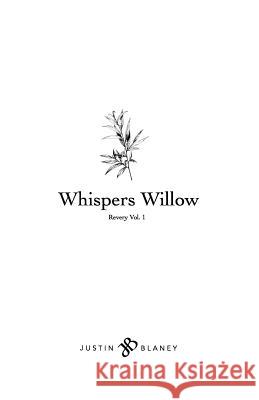The Whispers Willow » książka
The Whispers Willow
ISBN-13: 9781534812109 / Angielski / Miękka / 2016 / 206 str.
It started when I purchased a passport size brown leather Midori from a shop in San Francisco in September of 2015. The blank pages inside were cream, and without line. I might have sketched an outline of the ferry building along the embarcadero or jotted down the neighborhoods I wanted to visit with my daughter who was traveling with me. Instead, I ordered a coffee at a small cafe off Market, and in the midst of honking and skateboarding and walking dogs and barking pedestrians, I found myself writing a few thoughts down, a diamond to mark the end of each. Not complete thoughts. Certainly not essays. I did not set out to write poetry. Nor did I aspire to philosophy. I simply recorded my musings, about whatever came to mind. And many months later, after filling one notebook, and then another, and another still, I realized I didn't have a single idea as to what it was I had been writing. If I were to ever share any of these thoughts, how would I describe their genre? Some leaned poetical, more rhythmic in nature, though I have never studied poetry and feel ill equipped to make a definition, and still less certain of my willingness to call anything I create poetical. But to call all of these thoughts philosophy or essay was similarly without fit to those that seemed more desirous of embracing the beauty of language and the pleasure of veiled meaning. Verse, prose, composition, expose- nothing quite fit. Until I stumbled on the word reverie. Reverie is a day dream. A musing. A single thought. This described, better than any other word, the scribbles I'd been jotting down. So I decided, upon accepting the inner call to send forth what follows into the wild, that these musings must be known as reverie. Since I'm so bold as to attempt the creation of a new form of written word, I feel it's prudent to make a few definitions and points of clarification. In the context I intend to use the word, reverie (rev-er-ie, rhymes with every) is a singular thought expressed in writing. It need not be rhythmical, but it can embrace rhythm. It need not rhyme, but rhyme can be used to enhance. It need not be either overtly logical, nor cryptically puzzling. It need not be long or short, beautiful or simple, flowery or plain. A reverie is simply a thought, a day dream, a musing. Revery (pronounced the same) can be used as the plural for two or more reverie. A person who composes reverie can be referred to as a reverist. And the genre should be known by the singular form of the word, reverie, not the plural. I suppose reverie, as a category of the written word, is suited perfectly for someone like me who can't decide what it is that he or she is creating, and doesn't like the idea of having to force it into one genre or another. It's a big tent idea, encompassing, in part, poetry, philosophy, short fiction and memoir. Reverie is well fit to the task of containing the often contradictory thoughts ponderers can be prone to in a single, otherwise hot mess of a work, manuscript. If you find the writer, or reader, inside you is similarly unable to sit in one place and behave for five minutes in a row gawddammit , I hope you find reverie a liberating construct. Thus begins this first volume of revery by Justin Blaney, containing the first 100.
Zawartość książki może nie spełniać oczekiwań – reklamacje nie obejmują treści, która mogła nie być redakcyjnie ani merytorycznie opracowana.











